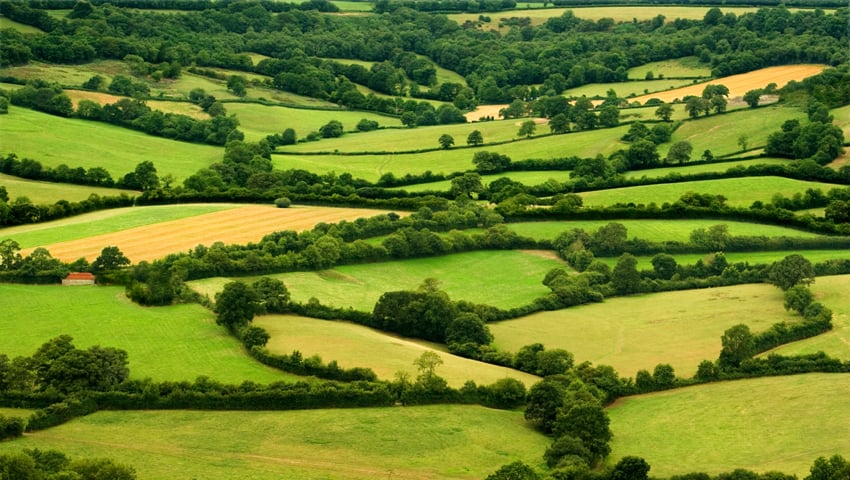The UK Government has confirmed that it has injected more than £343m into the rural economy in the first week of December, benefiting more than 31,000 farmers. This includes payments worth £223 million to Countryside Stewardship revenue customers and £74 million to Environmental Stewardship customers, administered by the Rural Payments Agency (RPA).
The government says that a new and improved Countryside Stewardship Higher Tier (CSHT) scheme will open in 2025, providing new quarterly payments designed to improve farmers’ cashflow and a rolling application window so customers can apply throughout the year. The scheme includes new actions to improve flood resilience and species abundance and important funding to secure enhanced environmental benefits and deliver for nature recovery, including sensitive areas such as Sites of Special Scientific Interest (SSSIs).
Secretary of State for Environment, Food and Rural Affairs Steve Reed said, “Our commitment to farmers is steadfast. That is why this government is working hard to get money into farmers bank accounts as well as announcing today how farmers can benefit from the new Countryside Stewardship Higher Tier scheme, with more flexible actions, improved payments to help cashflow and a rolling application window.”
Progressive farming and nature organisations were however unimpressed.
Martin Lines, Chief Executive of the Nature Friendly Farming Network, said, “While Defra’s ambition to bring 1,200 farmers into new Higher Tier agreements is welcome, the news that some farmers will be offered mirror and rollover agreements at the old payment rates is deeply disappointing.
“These payment rates are significantly less rewarding than those available under the new Countryside Stewardship and Sustainable Farming Incentive schemes. Farmers who have been at the forefront of adopting nature-friendly approaches should be fairly rewarded for what they have achieved, not penalised and placed at a disadvantage.
“Defra urgently needs to recognise that all farmers delivering environmental benefits, regardless of the schemes they are part of, should get fair, equal payments.”
Meanwhile Alice Groom, RSPB’s head of sustainable land use policy, said, “Defra’s lack of progress in rolling out Higher Tier Countryside Stewardship in England leaves pioneering farmers who have restored incredible habitats like blanket bog, rivers and meadows in limbo. Without the necessary support required, it will be impossible for farmers in some of our most habitat- and nature-rich landscapes to help meet the UK Government’s legally binding nature and climate targets. Government must therefore commit to a dedicated ring-fenced budget for Higher Tier, scaling up the access and advice available for farmers in order to future proof our food security, farm business resilience and farmland wildlife.”
Seeking to provide clarity on the value of the figures, Julia Aglionby, Professor of Practice, University of Cumbria, said, “The RPA’s ability to pay Countryside Stewardship (CS) and Environmental Stewardship (ES) in a timely fashion has improved, which is good, but the quantum of cash delivered last week falls far short of 2020. The Rural Payment Agency’s 2020/21 Annual Report states £1.67 billion was paid to farmers on 1st Dec 2020 just on Basic Payment Scheme (BPS). CS and ES payments were on top. Between December 2020 and March 2021 almost £1.9 billion was paid to farmers via Direct Payments and Agri-environment.
“Therefore the overall injection of cash into the rural community in 2023 from ES/CS/BPS appears significantly reduced even if we add the 2024 delinked Direct Payments which were paid earlier this year.”
Rural Payments
RPA Chief Executive Paul Caldwell said, “Our farmers are the heartbeat of the nation’s rural economy, and RPA remains focused on supporting them by getting payments into bank accounts as quickly as possible. I am very pleased that this December we have been able to inject more funding than ever from environmental schemes into the rural economy. This comes at the same time as providing more certainty over the details in Higher Tier offer to enable farmers to see for themselves how it can benefit them.”
The Countryside Stewardship Higher Tier will open through an initial controlled roll out to ensure everyone gets the necessary support. Initially, applications will be by invitation – on a rolling monthly basis.
Government is also publishing an additional 14 Sustainable Farming Incentive (SFI) endorsed actions, further improving the offer. These will be available from summer 2025 to enable farmers and land managers to contribute further benefits to Grassland, Heritage, and Coastal sites, among others.
Further payments made in December include £39 million under SFI, as part of the quarterly payments system designed to improve farmers’ cashflow and a further £7.4 million has been paid to customers who have completed Capital Grants works.
As part of its New Deal for Farmers, the government will set up a new British Infrastructure Council to steer private investment in rural areas including broadband rollout in our rural communities.
